2019 International Year of Indigenous Languages: Word of the Week - Week Twenty-Five.
By Administrator | 18 June 2019
As part of State Library's commitment to the 2019 International Year of Indigenous Languages, we will be promoting a 'word of the week' from one of the 125+ Aboriginal and Torres Strait Islander languages and dialects from across Queensland.
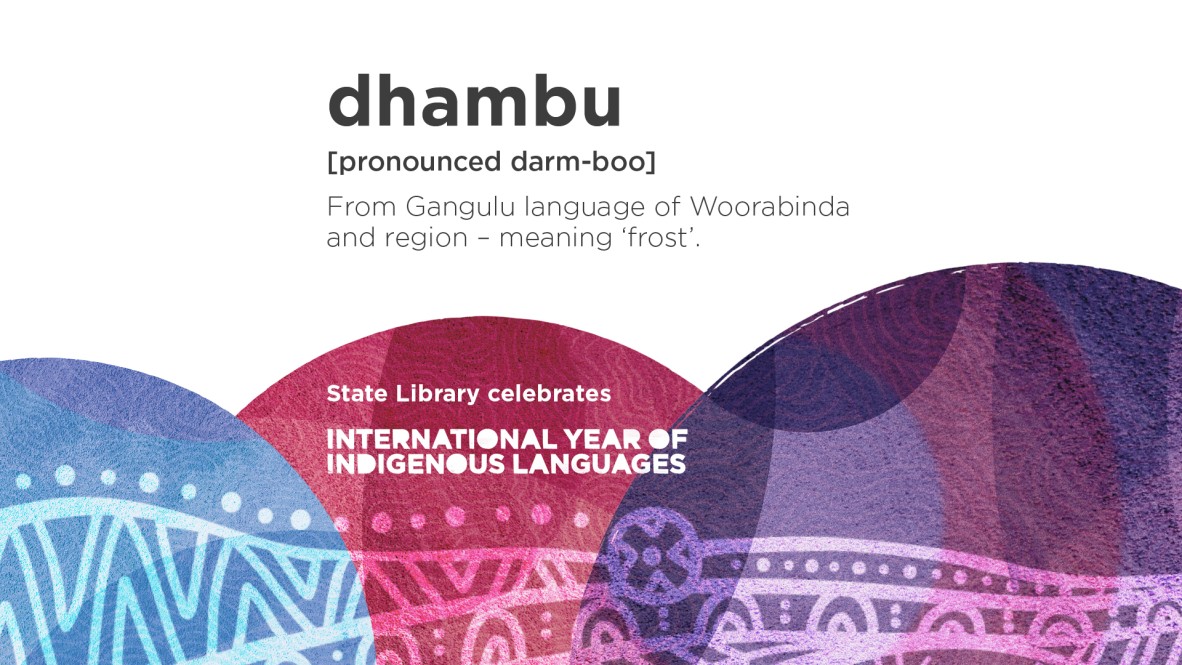
State Library’s IYIL2019 Word of the Week: Week 25.
State Library's 'word of the week' for Week Twenty-Five is dhambu pronounced darm-boo], from the Gangulu language of the Central Queensland. Continuing the theme of cold weather at this time of the year, it means 'frost'.
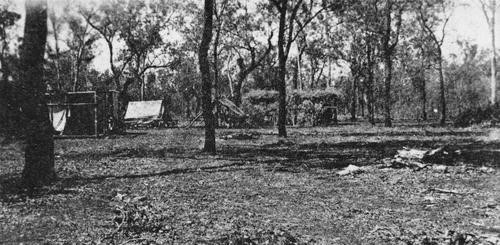
108908
Gangulu is also written as Kangulu, Khangulu, Gangu, etc. and was spoken in the area Clermont south to Dawson River taking in the localities of Woorabinda, Springsure, Blackwater and Biloeola. Linguistically, it is related to the Biri Chain of languages which extend from Central Queensland to Townsville.
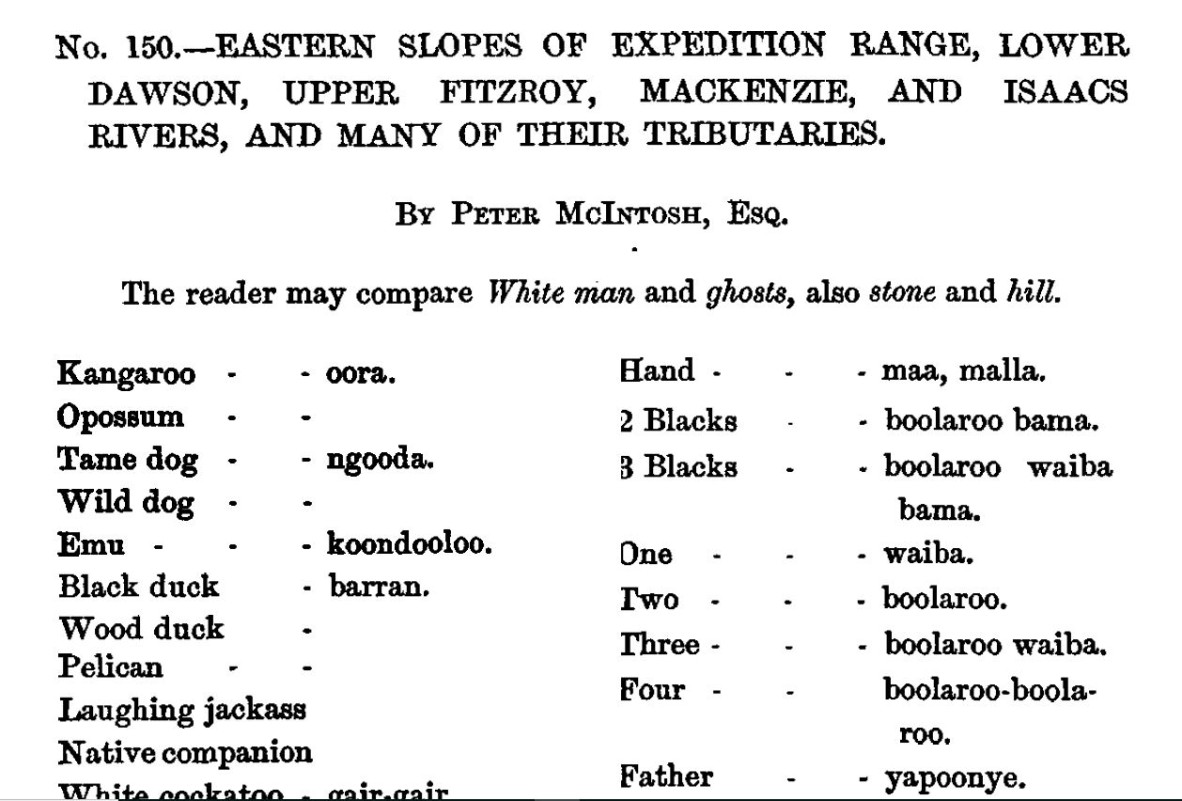
RBF 572.994 cur
There are some historical wordlists collected in the late 19th Century such as the image above; however, most linguistic research has been contemporary work by Nils Holmer, Gavan Breen and Angela Terrill. Some of these texts are held in the State Library collections and can be located using 'Gangulu' on One Search.
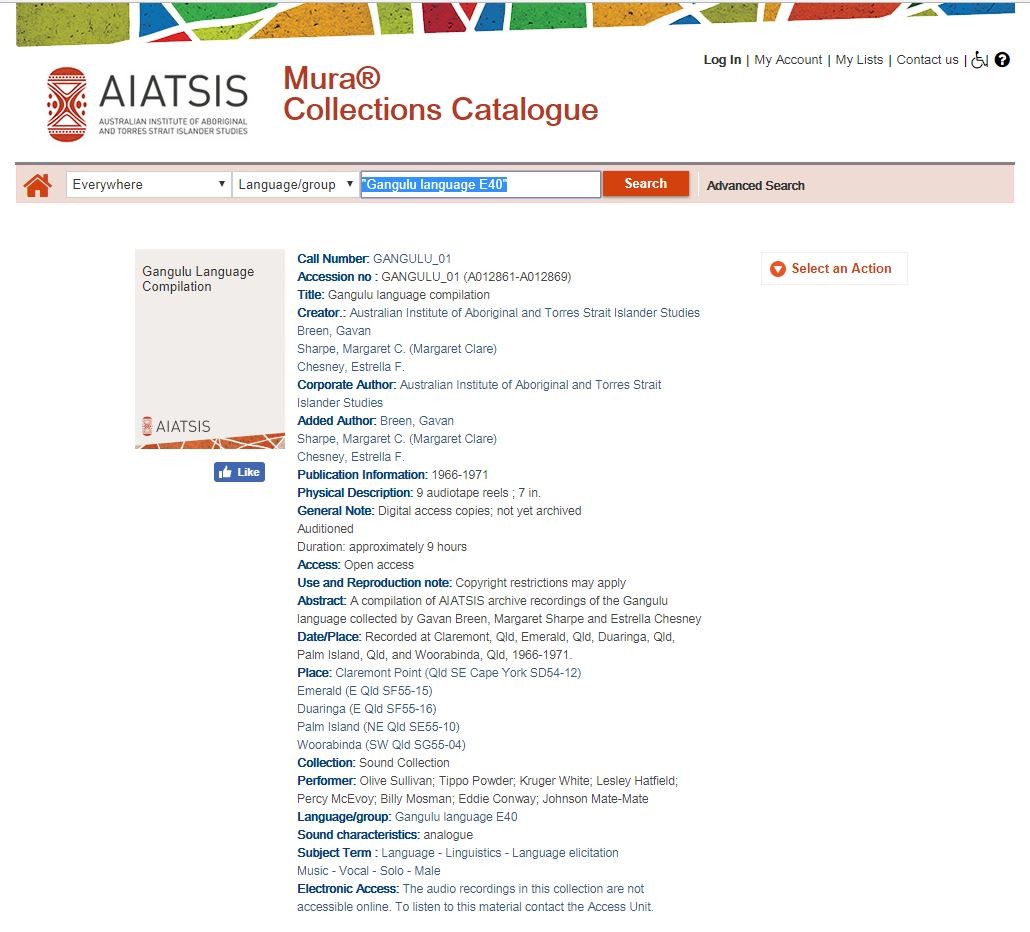
Additionally, Gavan Breen and Margaret Sharpe recorded language speakers at Woorabinda, Clermont and Springsure during the 1960's-1970's; these sound recordings are held at AIATSIS. The above image from AIATSIS shows the Gangulu language compilation which comprise ~9 hours.
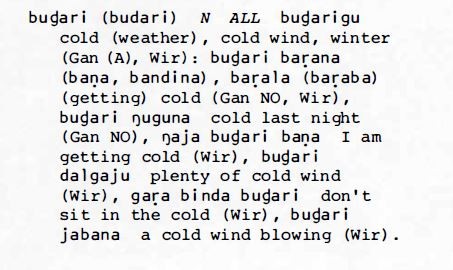
Gangulu is undergoing revitalisation across the region, notably Woorabinda - there are no known speakers of the language which is considered endangered. The revival efforts of community members are supported by the Central Queensland Language Centre.
State Library of Queensland invites you to celebrate the 2019 International Year of Indigenous Languages as we raise awareness of the rich diversity of Queensland’s Aboriginal and Torres Strait Islander languages.
Join the conversation as we post a new word for each week!
Week Twenty-Five 18 - 24 June 2019.
Desmond Crump
Indigenous Languages Coordinator, State Library of Queensland
State Library of Queensland Aboriginal and Torres Strait Islander Languages Webpages
State Library of Queensland Aboriginal and Torres Strait Islander Languages Map
Sources: This week's word of the week has been sourced from the following items in the State Library collections.
Terrill, A. (1998) Biri. J 499.15 TER
Roth, W. E. (1898-1903) “Reports to the Commissioner of Police and others, on Queensland aboriginal peoples 1898-1903.” FILM 0714
Image:
Beginnings of the Woorabinda Settlement, 1927. JOL Negative
108908
Further Reading
Other materials in the State Library collections relating to Gidhabal and neighbouring languages include the following:
Breen, G. (2009) “The Biri dialects and their neighbours”. Transactions of the Royal Society of South Australia, V133, No.2. SER 506.942
Curr, E. M. (1887) The Australian Race: its origins, languages, customs, place of landing in Australia and the routes by which it spread itself over that continent. RBF 572.994 cur
Holmer, N. (1983) Linguistic Survey of South-Eastern Queensland. J 499.15 HOL
Roth, W. (1898) The Aborigines of the Rockhampton and surrounding coast districts. Microfilm. FILM 0714
Terrill, A. (1998) Biri. J 499.15 TER
Websites
Australian Institute of Aboriginal and Torres Strait Islander Studies (AIATSIS)
Central Queensland Language Centre
Woorabinda Indigenous Knowledge Centre (IKC)
Comments
Your email address will not be published.
We welcome relevant, respectful comments.